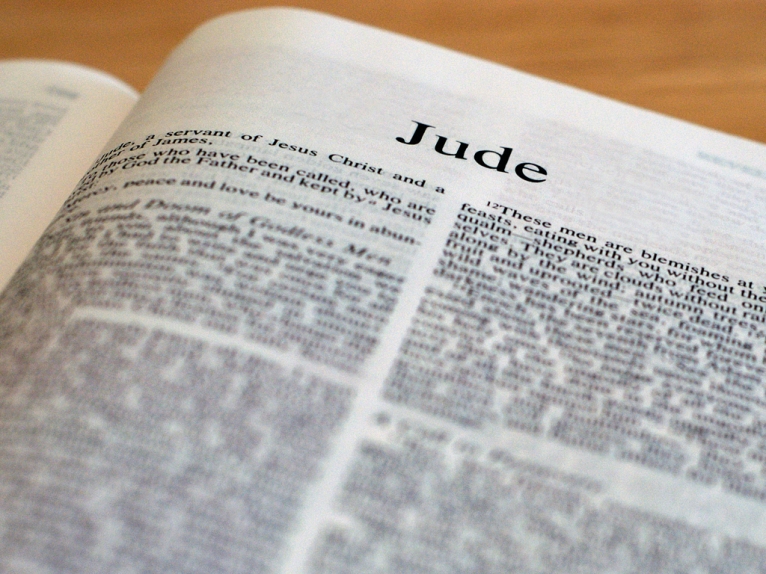So, I was flipping through the New Testament the other day, landed in the Book of Jude. It's a short one, you know, easy to miss. But man, something really jumped out at me this time around.
I got to verses 14 and 15, and Jude starts talking about Enoch. He says, "Enoch, the seventh from Adam, prophesied about them: 'See, the Lord is coming with thousands upon thousands of his holy ones to judge everyone, and to convict all of them of all the ungodly acts they have committed in their ungodliness, and of all the defiant words ungodly sinners have spoken against him.'"
And I remember thinking, "Hold on a second. Where's that from?" I mean, I've read the Old Testament a fair bit, and I couldn't place that quote directly. It sounded familiar, kind of like something a prophet would say, but not a direct hit from Isaiah or Jeremiah, you know?

My first thought was, okay, maybe it's a paraphrase, or I'm just forgetting. I grabbed my study Bible, looked at the little notes at the bottom of the page. Usually, they point you right to the Old Testament book if it's a quote. But this one was different. The note mentioned something called the "Book of Enoch."
The Book of Enoch? To be honest, I'd heard of it, vaguely. Knew it wasn't in my standard Bible. So, this got me curious. I had to dig a little deeper. What was Jude doing, quoting a book that's not in our regular lineup?
So, I started looking into this Book of Enoch. Turns out, it's an old Jewish text, written way back, sometime between the Old and New Testaments. People back then, especially in Jewish circles, knew about it. Some even respected it highly, even if it wasn't officially "Scripture" in the way Genesis or Psalms were.
Here's what I found out through my digging:
- The specific quote Jude uses is pretty much word-for-word from a section in 1 Enoch (chapter 1, verse 9, to be exact).
- Jude's audience, a lot of them early Jewish Christians, would likely have been familiar with the Book of Enoch. It was part of their cultural and religious background noise, so to speak.
- He wasn't trying to sneak something in. He was using a source his readers might recognize to make his point stronger.
So, why did Jude do it?
That was the big question for me. Why use this particular book? Well, from what I gathered, Jude was writing about false teachers causing trouble in the church. He wanted to warn people, to show them that God's judgment on ungodliness is a serious thing, something foretold long ago.

By quoting Enoch, he was doing a couple of things. He was showing the ancient roots of this prophecy of judgment. And he was using language and ideas that would resonate with his readers. It's like when a speaker today quotes a well-known historical figure or a popular book to make a point – it adds a certain weight, a certain familiarity.
It doesn't mean Jude thought the entire Book of Enoch was inspired Scripture like the Old Testament. That's a whole other can of worms. But he clearly found that particular passage from Enoch to be true and useful for his message. The apostles sometimes quoted non-biblical sources; Paul did it too, quoting Greek poets when he was talking to Greeks in Athens. It was about finding common ground, or using a recognized truth to make a divine point.
So, yeah, that was my little journey into Jude and Enoch. Started with a "huh?" moment while reading and ended up learning a bit more about the world of the early church and how they communicated. It's pretty interesting to see how these ancient texts connected and how writers back then used the resources they had. Makes you think, doesn't it?












